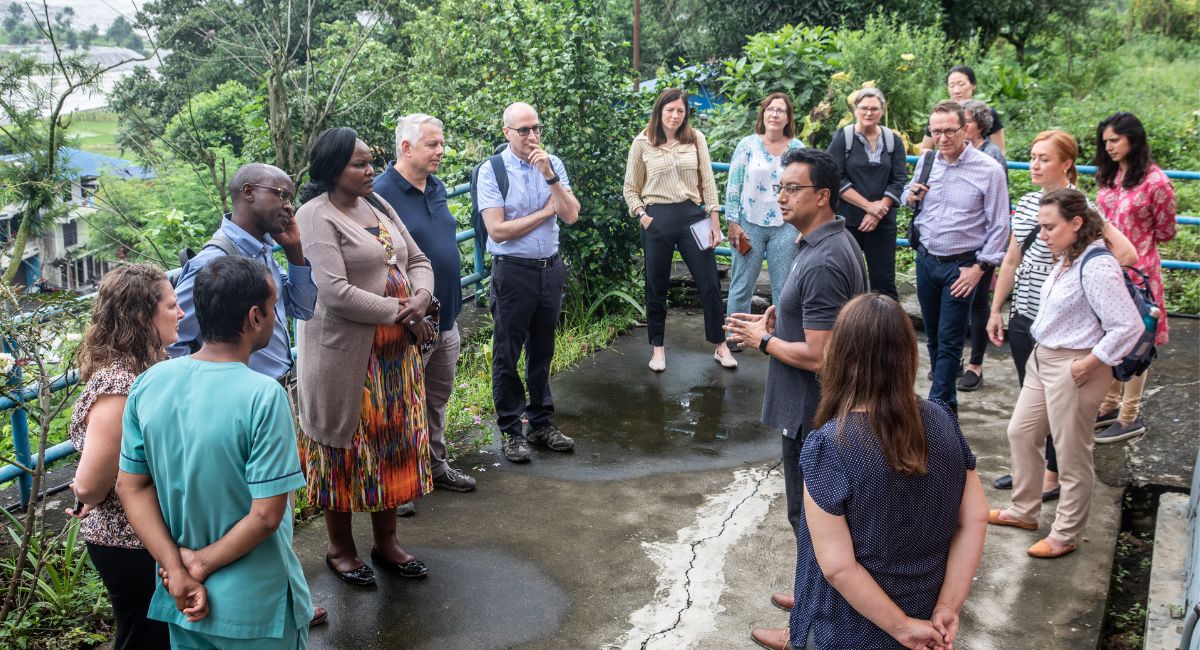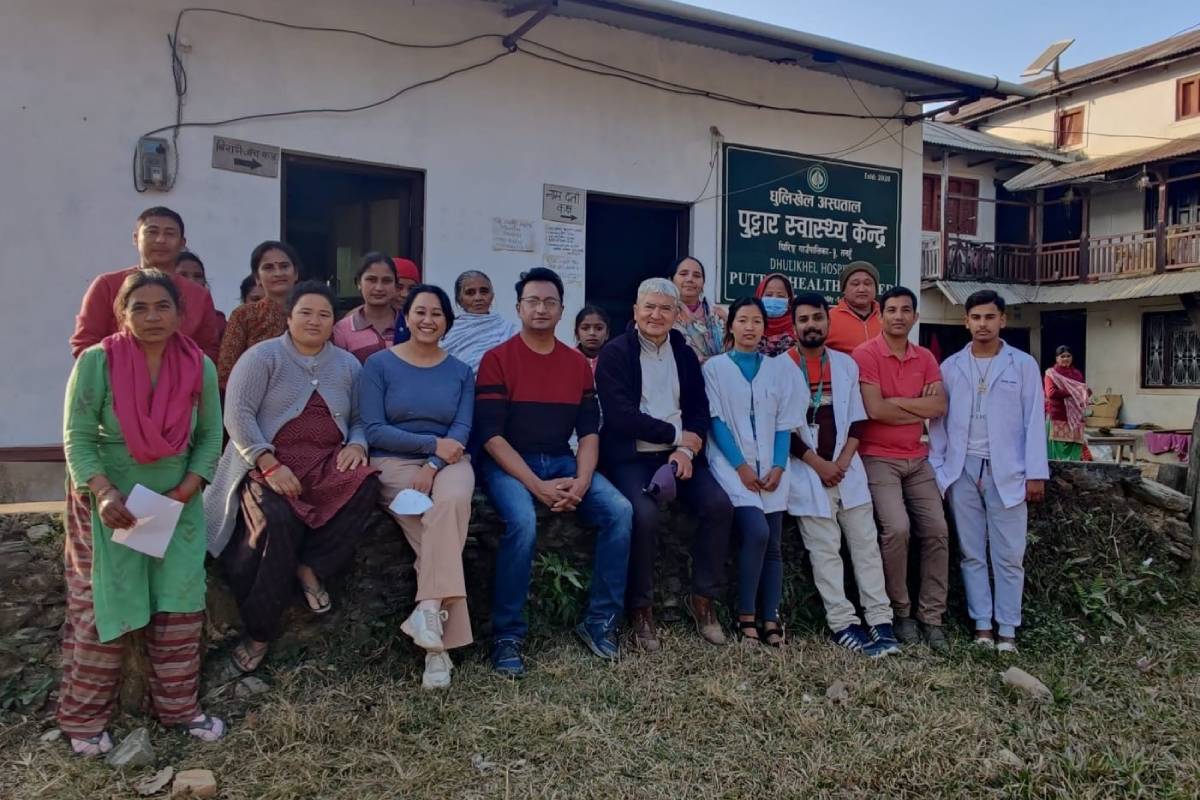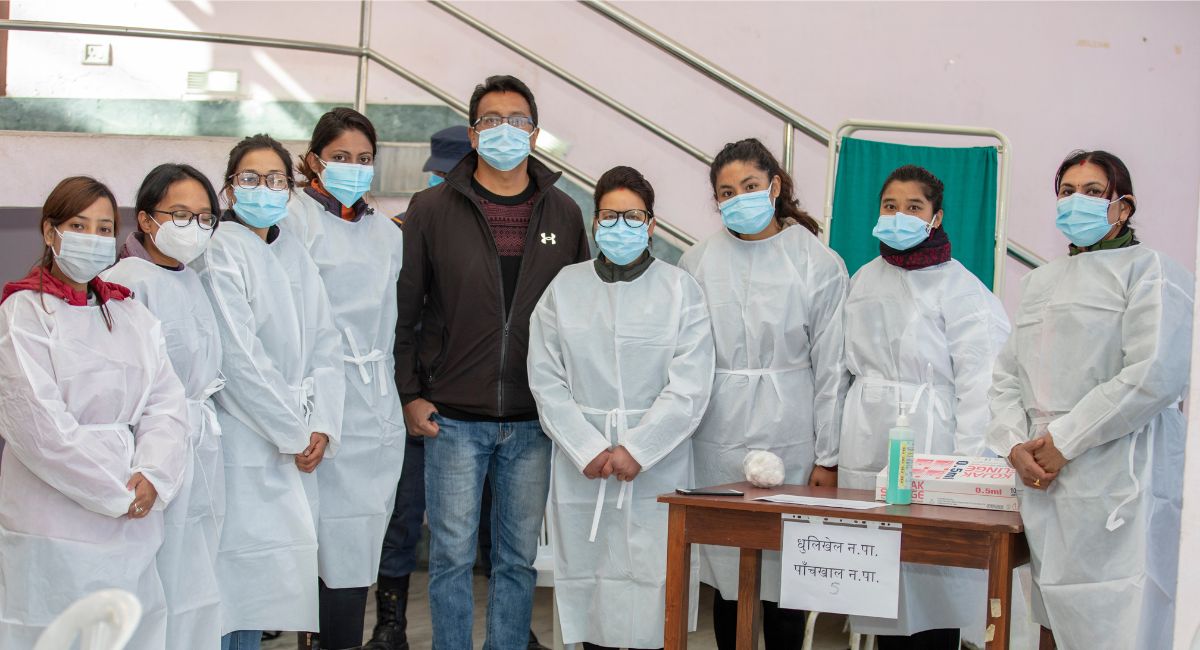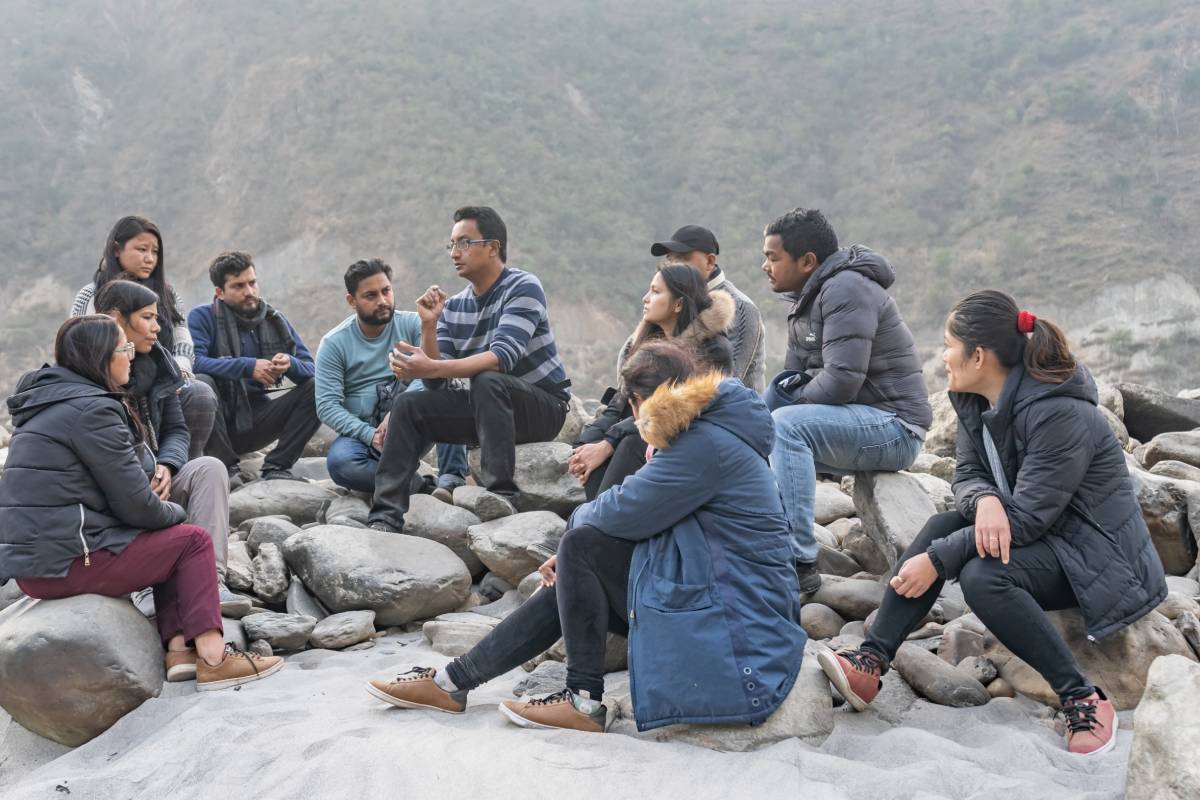
Biraj Karmacharya has remained an optimist throughout his career in public health because he believes in the power of people.
“The world is not short of good people,” he said. “If the vision is clear and the purity of the mission is there, it draws good people and good thoughts around it.”
Karmacharya has been creating ecosystems for motivated people to transform public health, especially in Nepal where he has led innovative work alongside his community. He helped expand hospital programs to serve rural populations. He created the country’s first-ever doctoral programs in public health to train future professionals. He researches diseases amongst low-income communities and works with governments to inform health policy.
“I always believed that to excel in one's professional life, it is not enough just to be good by oneself,” he said. “We have to create a whole ecosystem to unleash our full potential.”
This ecosystem Karmacharya works in is interconnected, and aimed at supporting public health in Nepal. But it also has global reach and impact. Karmacharya’s close ties to the international community, including the University of Washington (UW) where he was once a Fulbright student in the School of Public Health, have led to cross-country learning and funding opportunities for students and researchers.
For his work, Karmacharya received the School of Public Health’s 2024 Alumni of Impact Award, the highest honor the School gives to alumni for distinguished service and achievement across public health. He will address the School of Public Health class of 2024 at their Graduation Celebration June 9.
“Biraj has made an incredible impact on the public health of Nepal,” said Steve Gloyd, professor in the School of Public Health. “His work creating the outreach centers and the Dhulikhel Hospital community programs has been outstanding. He has also been a real inspiration to his fellow students at the UW and to his students at Kathmandu University. He is really a public health hero.”
The road to public health
As a new medical doctor in Nepal, Biraj Karmacharya joined the team at Dhulikhel Hospital, a community-based hospital with a big focus on serving underprivileged populations in rural Nepal.
Having grown up in the large city of Kathmandu, Karmacharya wasn’t as familiar with rural areas. But Karmacharya found himself drawn to the Dhulikhel Hospital’s work with rural communities. As a medical officer, he began visiting the hospital's outreach centers and other rural communities, located throughout the country. He’d drive a small truck through muddy roads, often getting stuck and needing the help of the community to pull him out.

In one village he visited, Karmacharya had a meeting with the community to discuss how they could better access health services at the nearby Dhulikhel Hospital. Karmacharya recalls all the lofty ideas he and his team pitched at this meeting, until one villager stood up and told Karmacharya that many small villages weren’t able to access any of these services because there was no bridge connecting those towns with the main road to the hospital. An old bridge crossing a major river had recently fallen into disrepair.
This was an important lesson for Karmacharya, that community knowledge and wisdom is critical for solving public health challenges.
“The solutions to the problems are best found in the places where the problems lie,” Karmacharya said.
Together, the community members, the hospital, and local and global funding agencies worked together to finance the construction of a new bridge, which connected these more remote villages with access to the hospital.
Karmacharya created and has led the Department of Community Programs/Public Health at Dhulikhel Hospital since 2006, where he has been engaged in developing and setting up innovative community-based health and integrated health and development programs.
This work has taught him that people’s health must be linked to community and economic development, agricultural support and women's empowerment. He helped lead the construction of water supply systems so communities would not need to haul water long distances. He also helped support communities in developing microfinancing programs, so that women in the communities could receive training in agriculture and health services.
This was the start of Karmacharya’s journey from health care to public health.
A global education
As a medical doctor Karmacharya felt he could only help so many patients at a time. But if he learned more about public health, he could have a far-reaching impact. That’s why he applied for the Fulbright Science and Technology program, through which he was able to earn his doctorate in Epidemiology and master’s in Global Health at the UW.
His UW education was helpful for its rigorous training, breadth of perspective on public health, and ability to network, Karmacharya said.
“I am grateful, proud and feel fortunate to have had this education at the UW,” he said. “The rigor and the breadth of education in the School of Public Health has dramatically shaped the way I view things, how I learn and teach.”
During the COVID-19 pandemic, Karmacharya was one of the Nepal government’s official epidemiologists briefing the nation weekly alongside the government spokesperson. He was also one of the key team members of the highest-level national entity created to handle COVID, the COVID Crisis Management Center. He said his training in epidemiology at SPH was the major reason behind successful execution of this national responsibility.

Karmacharya also highlights the strength of his educational journey that included the diverse experiences of his classmates too, who came to SPH from all over the world, as well as his mentors, including UW faculty Annette Fitzpatrick, Steve Gloyd, Judith Wasserheit, Carey Farquhar, Nona Sotoodehnia, Noel Weiss and many more.
Karmacharya played an instrumental role in supporting students across the UW in learning about Nepal. He is the founding co-director of the Nepal Studies Initiative at the UW, which encourages engagement and scholarly studies on Nepal. He has been instrumental in bringing hundreds of UW students, including many public health students, to Nepal for study abroad programs, so they can learn from their international counterparts. Karmacharya has also served as a mentor for many SPH students. He has also been named as one of the members of the inaugural Department of Global Health (DGH) Partners Advisory Board, a group established to help develop a framework for equitable partnerships between DGH and their partners around the world.
“Biraj is an amazing individual and an inspirational role model for public health, both at the institutional level as well as the community level,” said Ahoua Koné, clinical associate professor at SPH and co-chair of the SPH EDI programs. “In Nepal, I witnessed how deeply he is connected to his communities and how he tirelessly teamworks with others to achieve common goals. He is kind, respectful and always advocating for ways to elevate others around him, whether his peers, students, mentees or community partners.”
Local solutions
Karmacharya is now the administrative director of Dhulikhel Hospital, where he was once a medical doctor. In this role, he oversees the hospital’s unique approach to community-centered health care, and is now tasked with setting up new academic and training programs as well in Dhulikhel.
He created first-of-its-kind graduate programs in public health at Kathmandu University School of Medical Sciences to provide public health training to students in Nepal. This way, students will not need to travel abroad — a prohibitive cost to many — in order to be public health leaders. He works as an associate professor in this department of public health, teaching students who go on to work with global health local and international non-governmental organizations, in academia, as researchers, epidemiologists, or in the government. Karmacharya works alongside them in this ecosystem, and is inspired by how his students excel and lead in their work.
“The top universities for global health should be in the places where problems lie,” Karmacharya said. “These are the places where we gain real perspective and education.”

Karmacharya is also involved in research, and leads several studies related to health systems, policies and emerging disease burden.
His work with government leaders during the COVID-19 pandemic has taught him important lessons in pragmatism. Some of the most ideal public health policies can be challenging to implement, as it takes governments a long time to adopt policies and then roll them out to the public. People in academia can also sometimes lose sight of what is feasible for the public to adopt and practice. He continues to pursue ways to redefine how academia, government and communities can come together for the greater good.
There have been many challenges and Karmacharya said that working in public health requires consistency, perseverance and patience. Changes cannot happen overnight and many initiatives he’s been excited about haven’t worked out. But he hasn’t lost sight of his optimism, Karmacharya said, and that’s because he’s continuously inspired by people.
“I love working with the communities. Every community is like a unique individual or ecosystem with their own needs, strengths and identities,” he said. “Nothing enhances my belief or optimism more than engaging with people and finding heroes in the community.”
Watch Biraj Karmacharya address the UW SPH Class of 2024